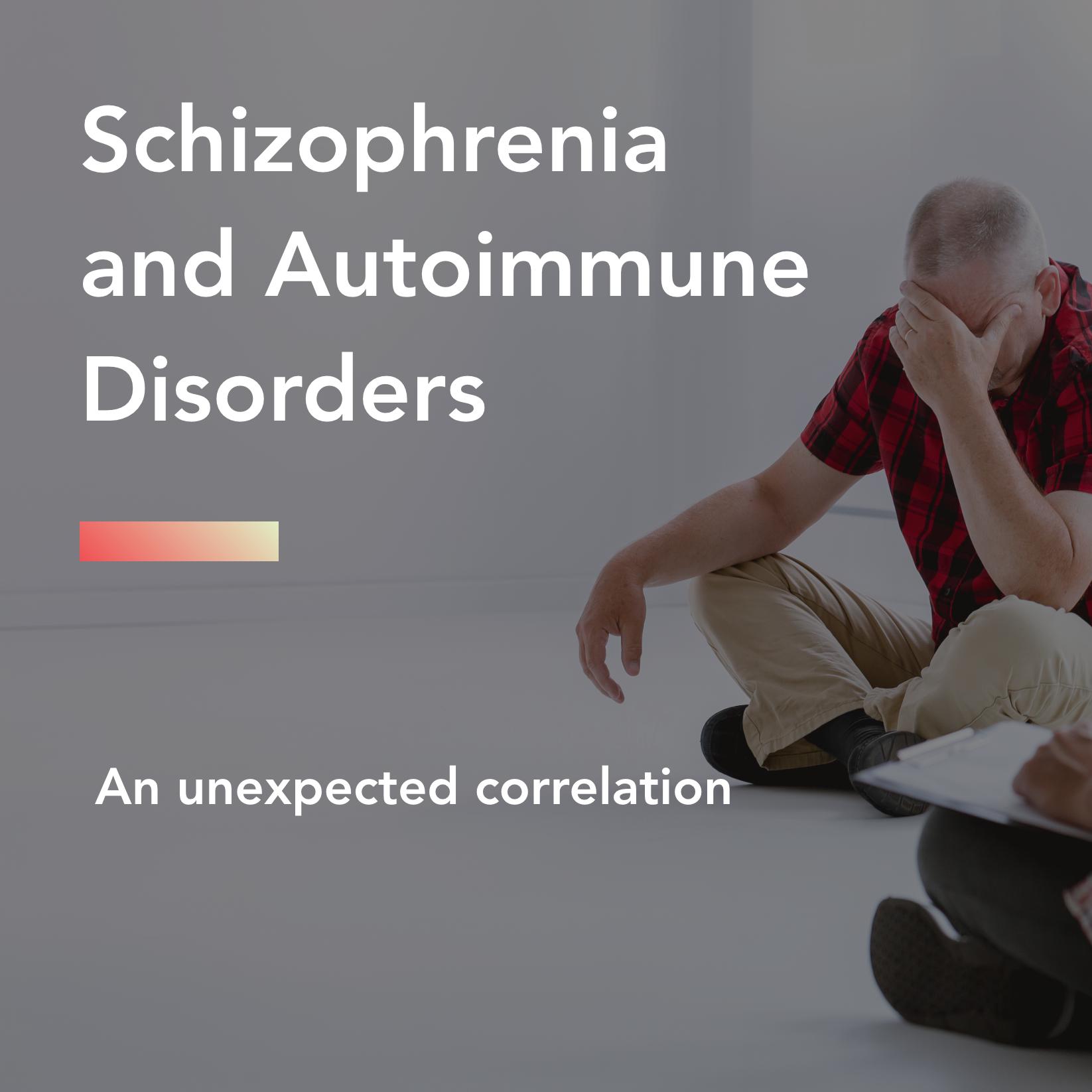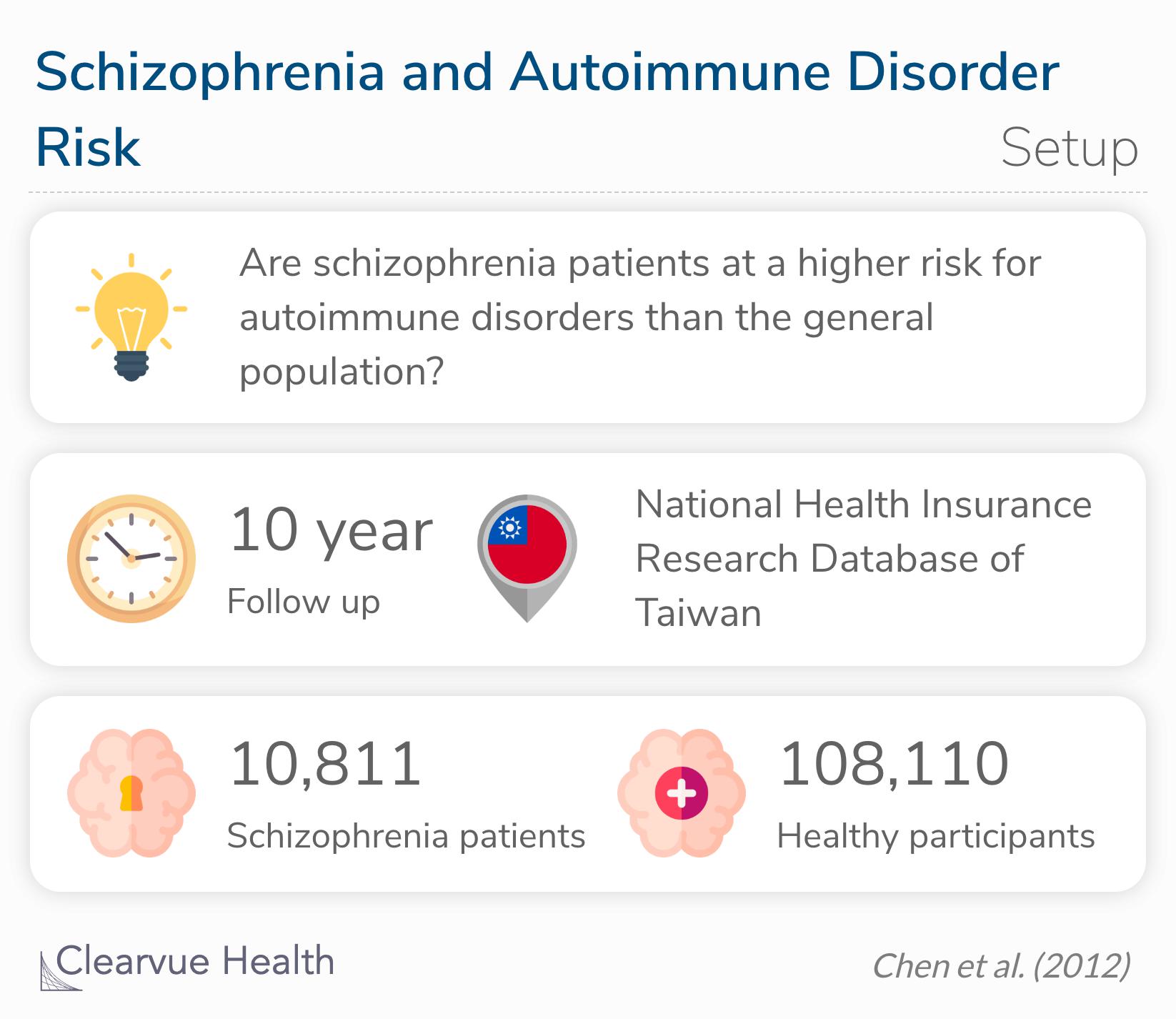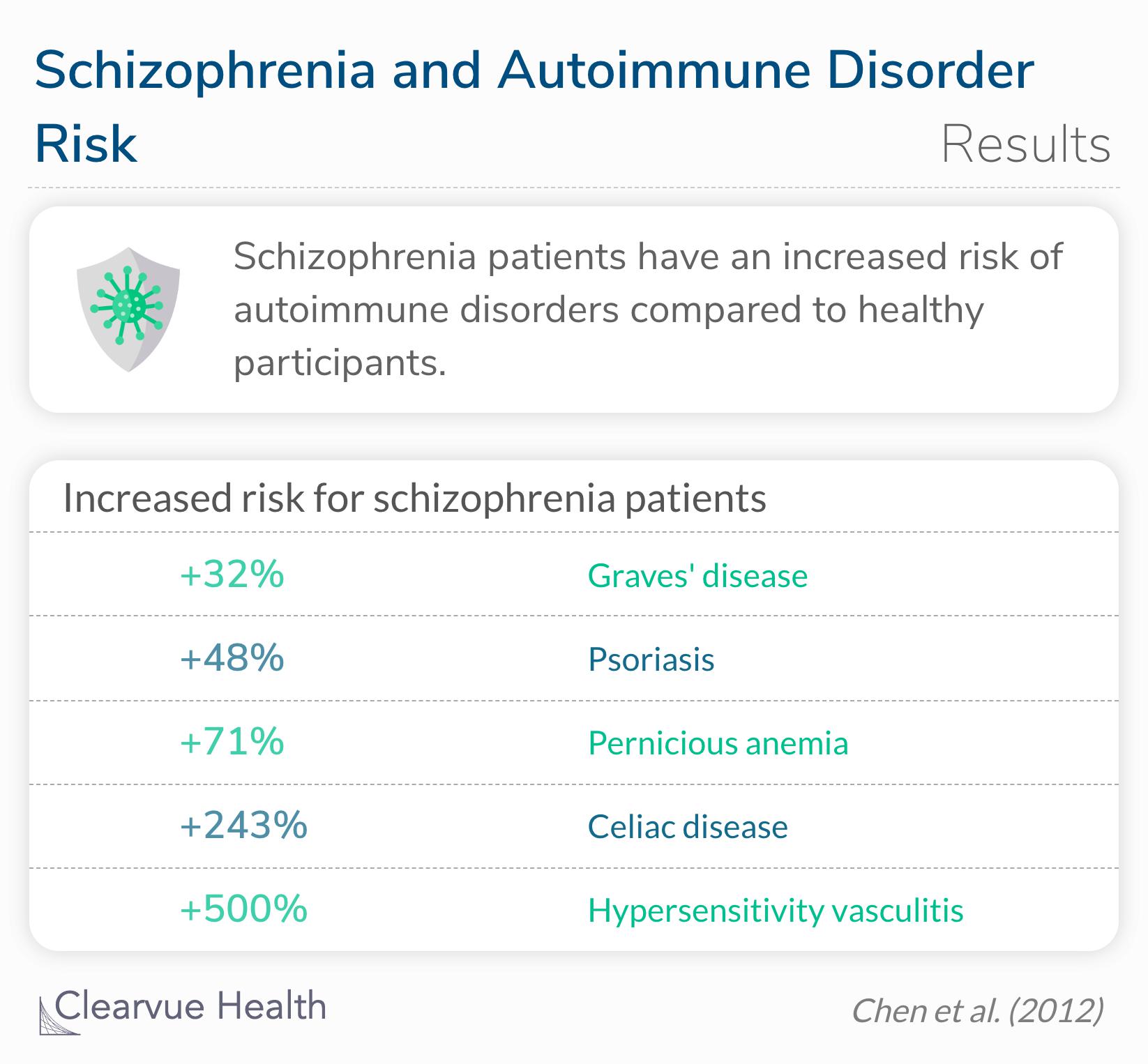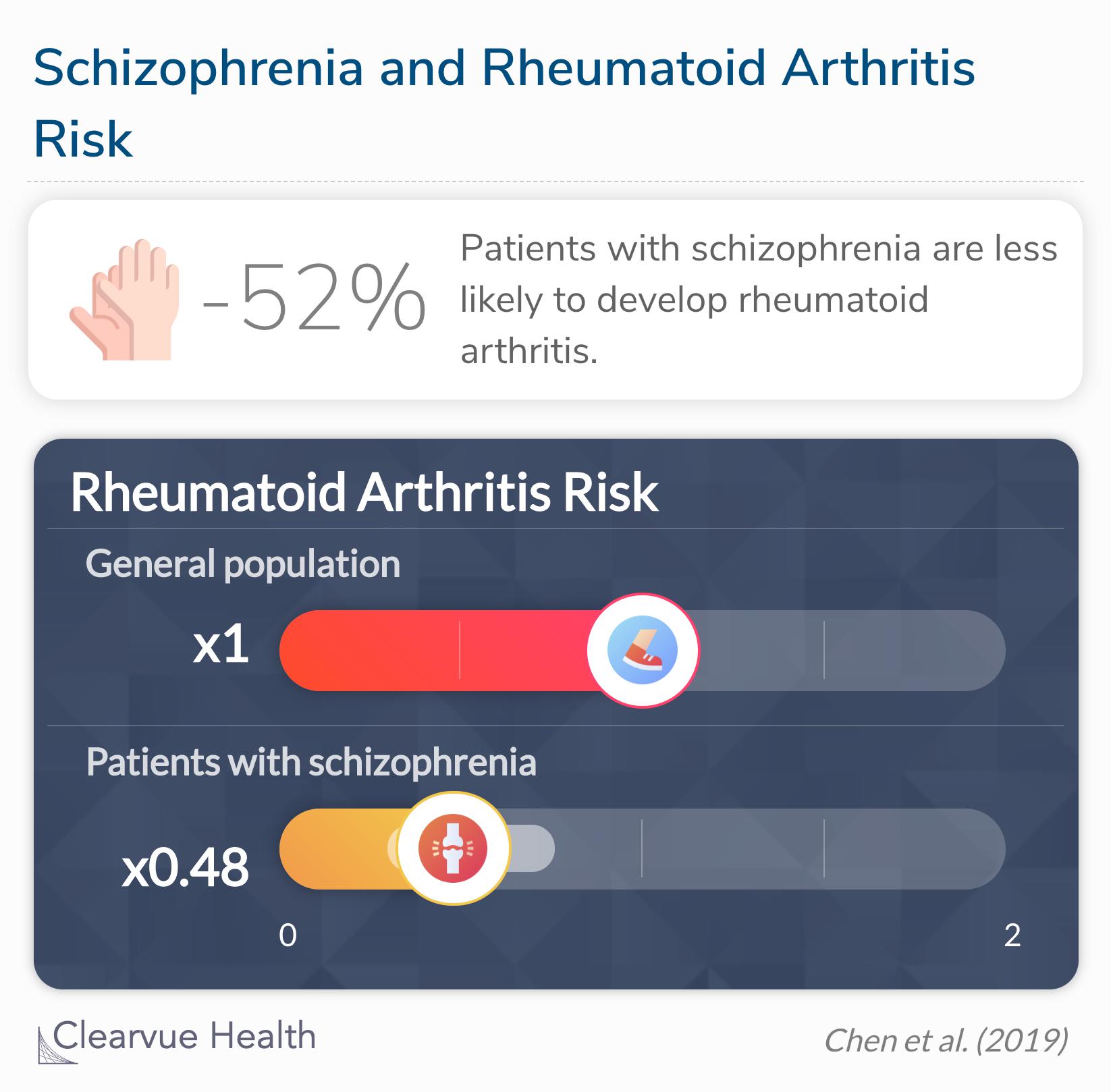Schizophrenia and autoimmune disorders: an unexpected correlation
“
Schizophrenia is a brain disorder the keeps you from thinking clearly. It can cause you to see or hear things that aren’t there, or to believe things that aren’t true.
UpToDate
The mental and behavioral symptoms of schizophrenia are well researched. Patients with schizophrenia exhibit issues such as hallucinations and memory loss. There is an evidence-based list of symptoms that help doctors diagnose and treat the condition. Emerging studies are exploring the physical symptoms of schizophrenia as well.
Schizophrenia and autoimmune disorders
“
Autoimmunity is recognized by an immune response directed against an antigen normally present within the body of the host.
UpToDate
In other words, an autoimmune disorder is when the body elicits an immune response against something within the body that is supposed to be there. The cause of an autoimmune disorder is essentially unknown. Scientists have hinted at potential genes or environmental factors that could increase someone’s risk, but there is no direct cause.
A large-scale research database in Taiwan observed schizophrenia as a potential risk factor for autoimmune disorders. They analyzed the medical records of 10,811 schizophrenia in-patients and 108,110 healthy participants. They followed their participants for 10 years and collected up-to-date medical records.
Schizophrenia was associated with a greater variety of autoimmune diseases than was anticipated.
Source: Prevalence of autoimmune diseases in in-patients with schizophrenia: nationwide population-based study
After analysis, they found that in-patients with schizophrenia had an increased risk of a variety of autoimmune disorders. Interestingly, they found the reverse effect of rheumatoid arthritis. It is unclear why rheumatoid arthritis risk would be so different from other autoimmune disorders. The study does not tell us the cause of these associations, only that a correlation exists. It does seem strange that a brain disorder would influence the risk of an immune disorder with no clear cause.
Schizophrenia and rheumatoid arthritis
A more recent story looked specifically at rheumatoid arthritis and schizophrenia. They viewed 10 years of data from the same database in Taiwan. Just like the previous study, they compared the risk of rheumatoid arthritis between patients with schizophrenia and healthy participants.
The main finding of this study was the discovery of a lower incidence of RA in patients with SCZ (hazard ratio (HR): 0.48, 95% confidence interval (95% CI): 0.31–0.77) after adjustment for baseline demographics and comorbidities.
Source: Assessing whether the association between rheumatoid arthritis and schizophrenia is bidirectional: A nationwide population-based cohort study
Again, the analysis revealed a negative correlation between schizophrenia and rheumatoid arthritis. This means that patients with schizophrenia were significantly less likely to develop rheumatoid arthritis than healthy participants. Researchers also tested whether rheumatoid arthritis could lead to schizophrenia, but those results were insignificant. In turn, schizophrenia most likely develops before rheumatoid arthritis.
Final thoughts
These studies offer confusing results. It is very clear that all autoimmune disorders can not be lumped together when discussing the risk for schizophrenia patients. The results of these studies are noteworthy yet without explanation. We are left to our own devices to figure out the behavioral or physiological factors that could be mediating this relationship. Nevertheless, these studies support a need for further research into brain disorders and autoimmune disorders.







































